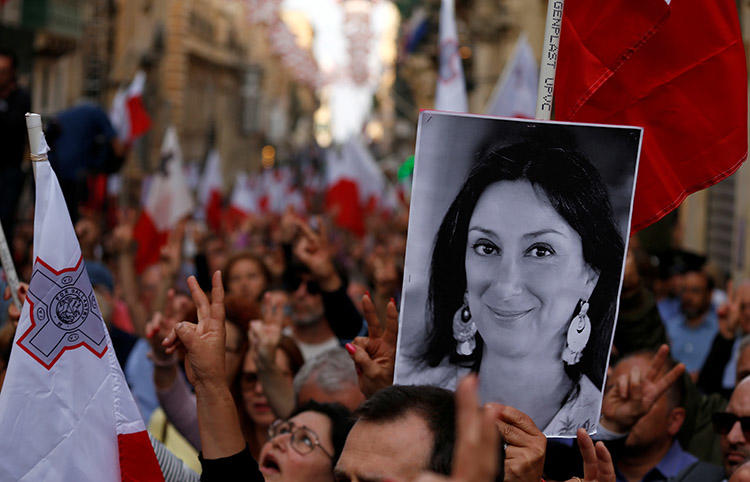“Being a reporter in much of the world is dangerous work. Being an investigative reporter can be deadly,” CPJ Deputy Executive Director Robert Mahoney told the U.S. Commission on Security and Cooperation in Europe, known as the Helsinki Commission, at a briefing in Washington, D.C. today.
Reporting on corruption, organized crime, and politics is a more dangerous assignment for most journalists than covering wars, Mahoney said. Impunity in the cases of journalists murdered in direct retaliation for their work emboldens killers, with CPJ research showing that in 86 percent of cases, the killers and those who hire them do not face justice.
Mahoney added that it was urgent to address the issue in the European Union, where attacks on the press have been relatively few over the years, but where the environment is changing. The murders of investigative journalists Daphne Caruana Galizia, in Malta, in October, and Ján Kuciak, in Slovakia, in February, are unprecedented; solving them is crucial for the future of investigative journalism and press freedom across Europe.
Read Mahoney’s full testimony here.
